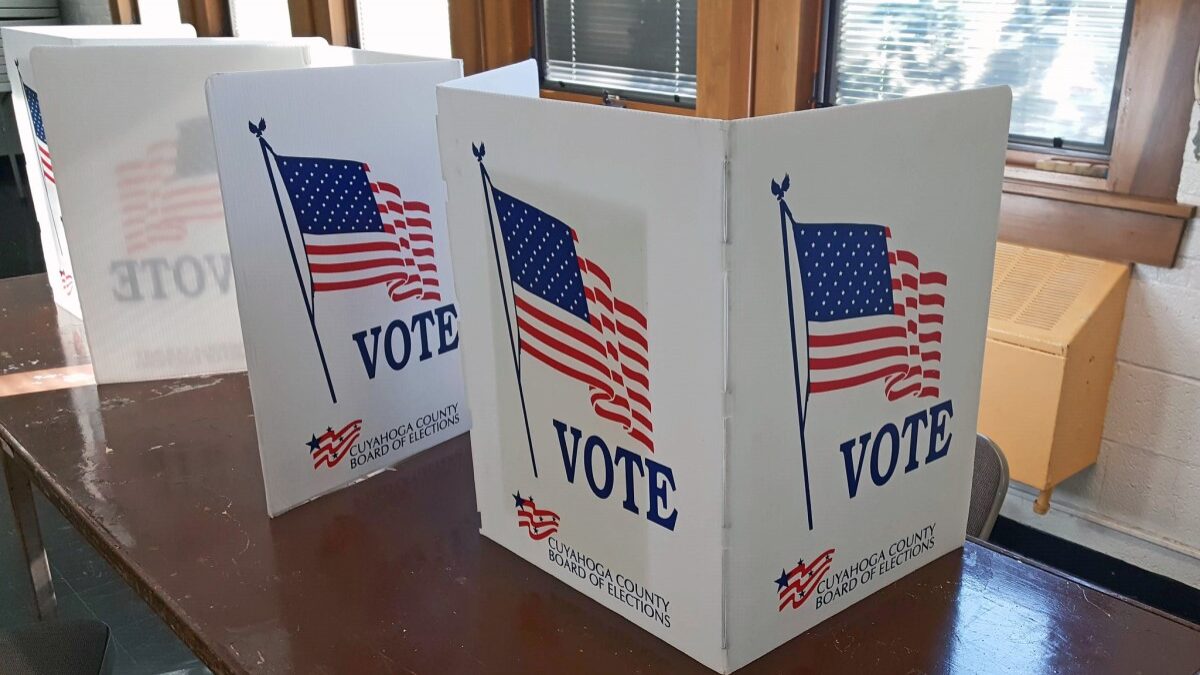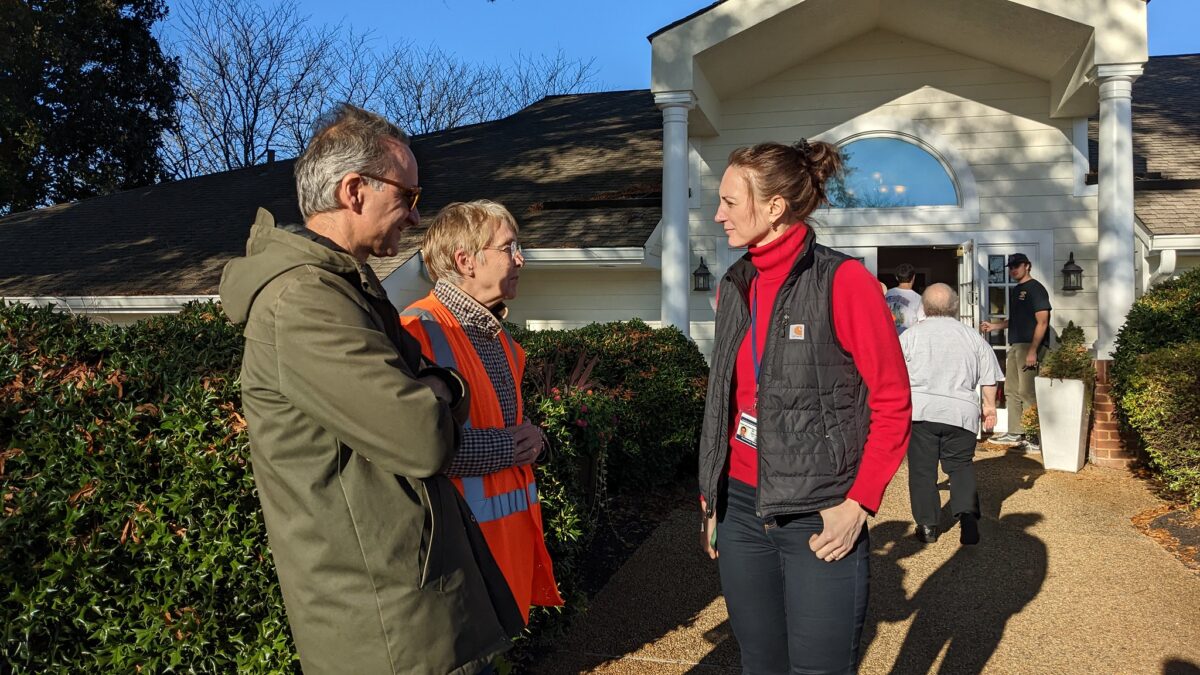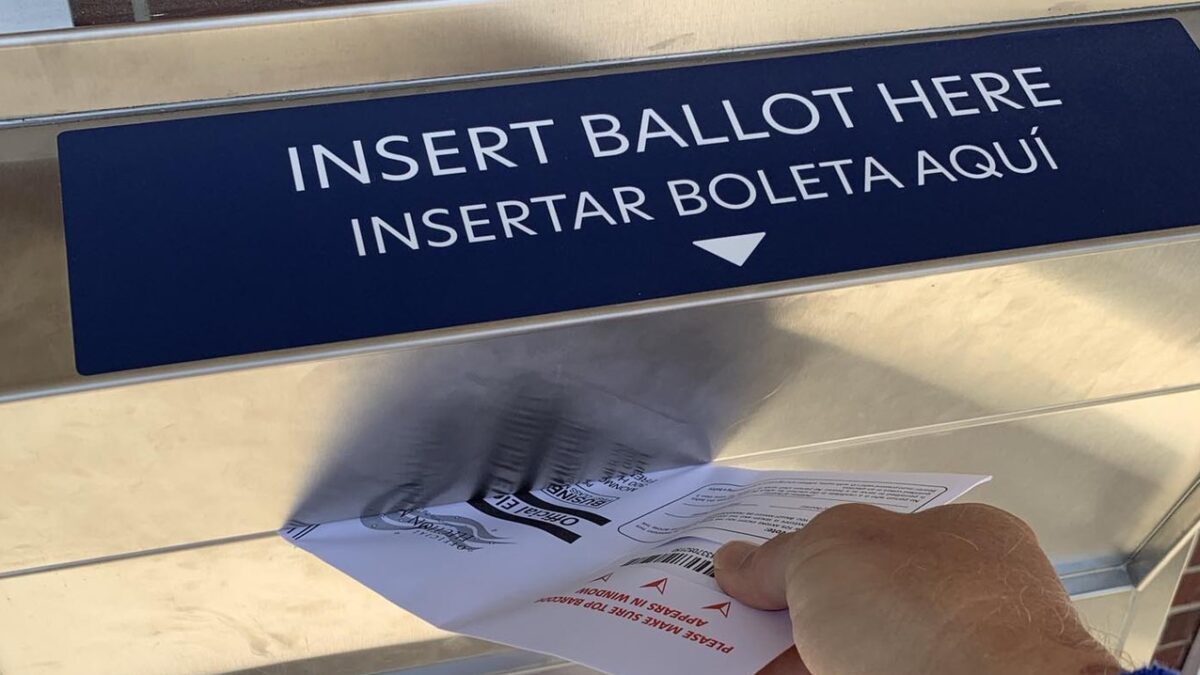
A 2024 ballot measure seeking to implement ranked-choice voting (RCV) in Idaho violates state law, a lawsuit filed Wednesday alleges.
Filed by Attorney General Raúl Labrador, the legal petition requests the Idaho Supreme Court invalidate a statute proposal set to appear on the Gem State’s November ballot that would abolish party primaries and institute RCV for general elections. Candidates of all parties would be forced to run in a single primary, in which the “top four vote-earners” would advance to the RCV-run general election, according to Ballotpedia.
The proposed ballot measure would effectively negate a law passed last year by the Idaho Legislature barring the use of RCV.
Under ranked-choice voting, voters rank candidates of all parties in order of preference. If no candidate receives more than 50 percent of first-choice votes in the first round of voting, the last-place finisher is eliminated, and his votes are reallocated to the voter’s second-choice candidate. This process continues until one candidate receives a majority of votes.
Labrador argues that Idahoans for Open Primaries, the ballot measure’s primary supporter, employed “misleading” language and practices when gathering signatures for the initiative by referring to the sought-after system as an “open primary.”
The attorney general claims defendants did this in spite of a ruling on the initiative by the high court last year. In that decision, the court’s majority instructed Labrador to rewrite his original title for the initiative and noted, as Labrador also does in the suit, that the measure’s use of the term “open primary” “fail[s] to accurately describe the primary system proposed by the Initiative.”
“The coalition’s pervasive uses of the slogan ‘open primaries,’ after this Court ruled it inaccurate, are knowing ‘false statement[s] or representation[s]’ that violate” state statute, the lawsuit reads. “All the coalition’s signatures were obtained in violation of this statute and ‘are null and void.'”
Labrador also accuses Idahoans for Open Primaries of using “deceptive marketing” and of neglecting to inform voters the proposal would institute RCV for general elections.
“[U]nlike the ‘open primaries’ slogan, ‘ranked-choice voting’ is nowhere to be seen on the coalition’s clipboards, banners, t-shirts, stickers, or website home page,” the lawsuit reads. “Indeed, it has been relegated to an afterthought in the coalition’s promotional efforts.”
In the lawsuit, the attorney general clarifies that “[r]anked-choice voting receives so little attention in Idahoans for Open Primaries’ promotional materials because it is highly unpopular and, when tried in other jurisdictions, often quickly repealed.”
By adding “a ranked-choice voting proposal to a comparatively more popular top-four primary proposal, Idahoans for Open Primaries hopes to secure votes from citizens who don’t notice that the initiative has anything to do with ranked-choice voting,” or those “who support a top four primary strongly enough to vote for the bundled pair,” according to the lawsuit.
[READ: Ranked-Choice Voting Is The Monster Under The Bed Of American Elections]
Another issue raised in the suit is Idaho’s “single-subject rule” for initiatives, which, according to a prior court ruling, requires “a common object, and that all parts of a statute relate to and tend to support and accomplish the indicated object.” Labrador argues that the initiative’s attempt to institute a top-four primary and RCV-run general election constitutes “two distinct objects,” and subsequently violates the “single-subject” provision.
“A top four primary has nothing to do with how votes are tabulated in the general election, and its implementation is unrelated to adopting a ranked-choice voting system,” the lawsuit reads.
Labrador has requested the Idaho Supreme Court issue “a peremptory or alternative writ of prohibition” instructing the secretary of state “not to include” the initiative title and number on the “certified ballot” distributed to local election officials, or “a peremptory or alternative writ of mandate ordering the Secretary of State … to declare that all signatures supporting the initiative are invalid and withdraw his filing, acceptance, and certification of the initiative so it does not appear on the final certified ballot.”
The attorney general asked the court to “expedite” its review of the case given its immediate relevance to the November election, according to a local outlet.









